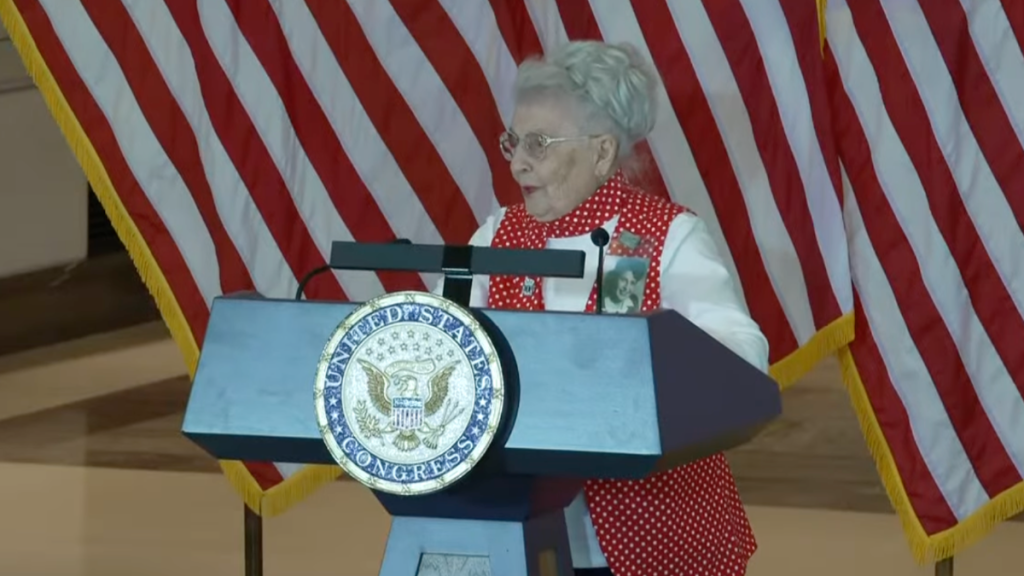A group of women called “Rosie the Riveters” was given a Congressional Gold Medal for helping the United States find victory during WWII.
The women who attended the ceremony at the U.S. Capitol were among the five million who went to work to build bombs and other equipment at home while most of the able-bodied men fought overseas.
“These are the invisible warriors on the home front,” House Speaker Mike Johnson said on Wednesday, April 10.
In total, 27 women in their 90s to 106 attended the ceremony wearing red and white polka-dotted attire, much like the war-time recruiting graphics that donned the iconic slogan, “We can do it!”
Rosie the Riveters flew into D.C. and were met with with a water cannon salute, according to NPR.
“This recognition is long overdue,” said Republican Sen. Susan Collins, of Maine. “But today, Congress finally bestows this honor on these deserving patriots.”
Rosie The Riveters Were “Invisible Warriors”
Lucille “Cille” MacDonald was one of the Rosies who spoke during the ceremony. She was 17 when the U.S. entered WWII. After hearing about Pearl Harbor, she left her family’s South Carolina farm and took a bus to Brunswick, Georgia where she became a journeyman welder.
“That’s when I said, ‘Do something about it. Just do something about it. Stop worrying and do something about it,'” Lucille said, via ABC News. “So I became very patriotic and very much in love with my country.”
“I was the best welder in the entire shipyard,” she continued. “I can’t forget that. I can’t ever forget that. The best, and boy that’s saying a lot. And I launched one huge ship a week. In just a week. I mean, imagine. You know how big a ship is? A ship is huge.”
Following WWII, service members returned home and once again filled the job women had taken over. Most of the Rosie the Riveters went back to their more traditional lifestyles, but their work remains a societal turning point.
“These women fought for double victory, really, when you think about it,” said Mike Johnson. ” It was a victory from tyranny, but it was also a victory from prejudice. Because although they were now welcome at our voting booths, they were not yet welcome on the usual assembly lines. That all changed because of these Rosies.”
You can find the source of this story’s featured image here.
Want to be happier in just 5 minutes a day? Sign up for Morning Smile and join over 455,000+ people who start each day with good news.



